Battle over migrant farmworker wages in Florida as farmers face rising costs
TAMPA, Fla. - Criss-crossing the back roads of Florida, you'll see just how fruitful the state is. Watermelons, peppers, corn and many more crops fill the landscape. Each one is unique, but the farmers who grow them share one growing problem: labor.
Their issue isn’t finding labor. It’s how much their labor force makes. The amount per hour that migrant farmworkers make may surprise you. The Florida state minimum wage is $12 per hour. The minimum wage for migrant farmworkers in Florida is $14.77.
The vast majority of farmworkers in Florida come through the federal H-2A program. It allows farmers to bring reliable foreign labor into the U.S. for seasonal work. In addition to paying the minimum wage set by the government, farmers are also required to pay for the workers' transportation into the country and pay for housing.
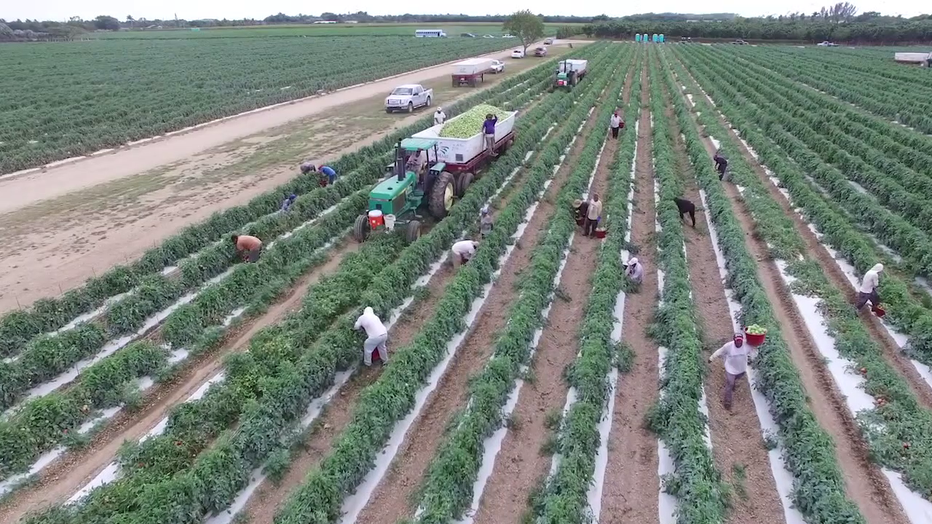
Farmers like Matt Parke, of Parkesdale Farms, say those costs are starting to add up.
"There's got to be a breaking point. Do I know what it is? We haven't got there yet, but we're getting close," he said.
Florida has more H-2A workers than any other state in the U.S., topping 51,000. In the last four years, their minimum wage has increased 26%. Parke says that high cost takes a huge bite out of his profits.
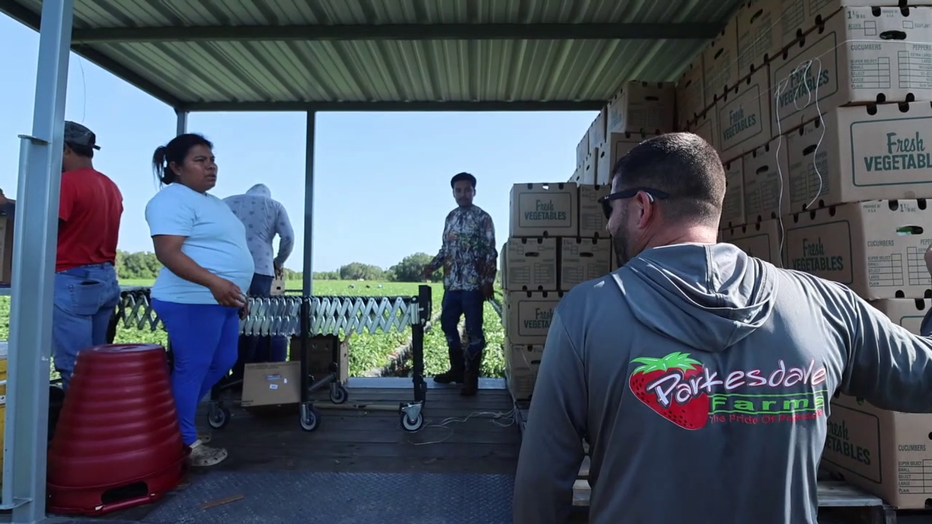
We visited him recently and watched his workers pick through a field of peppers. He said he’d be lucky to break even on what they were picking that day.
"There's days where we're losing money by picking. I mean, that's just how it goes."
Labor cost isn't an issue for just Florida farmers. Forty-five states and territories have a higher migrant minimum wage than Florida’s $14.77. California is the state with the highest at $19.75.
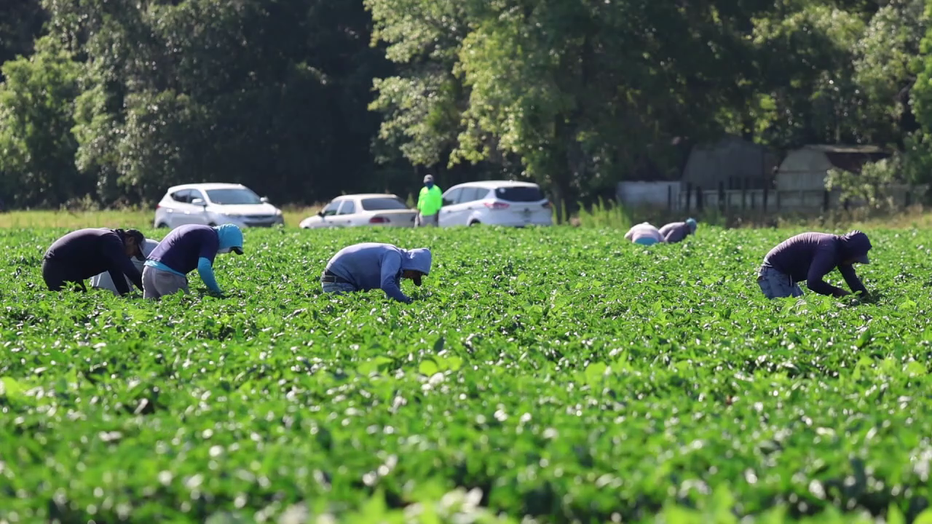
Senator Rick Scott is one of 16 senators across the country who recently signed a letter to congressional leaders requesting a freeze on the H-2A minimum wage.
"You don't want to put yourself in a position that you can't, as a farmer, you can't compete globally. We're in a global market, but we shouldn't be increasing their costs," he said.
"How cruel do you have to be? Especially, you know, with the wealth that senators themselves have and yet they have no hesitation to suppress wages of the people that feed us and who build this state in this country," says Ernesto Ruiz with The Farmworker Association of Florida.
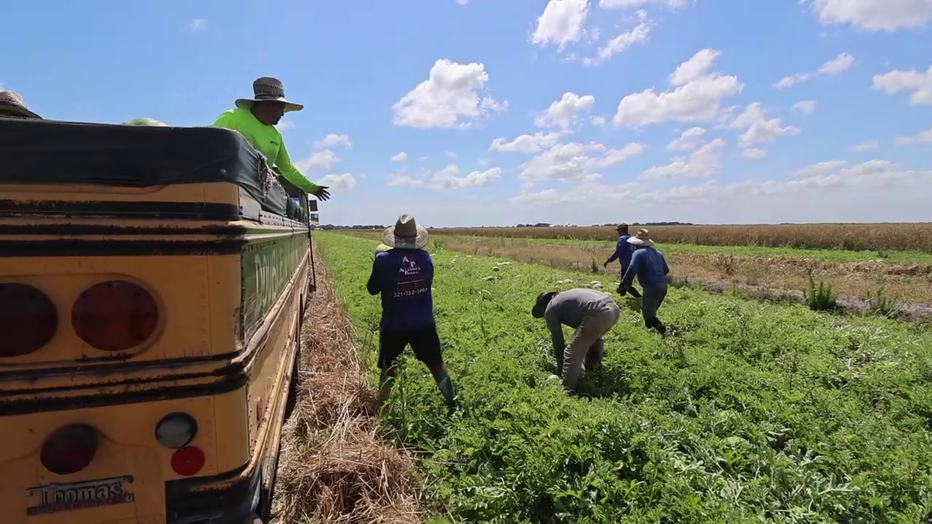
He thinks the $14.77 rate isn't high enough.
"It's brutal. It is grueling, grueling work. It is grueling work, and it carries a bunch of risks. And typically, in society, we tend to pay to some extent commensurate with risk."
Another large part of the issue for farmers is competition south of the border. Wholesalers want to buy the cheapest food. Since a Mexican farmer has lower labor cost, they can afford to sell food for less.
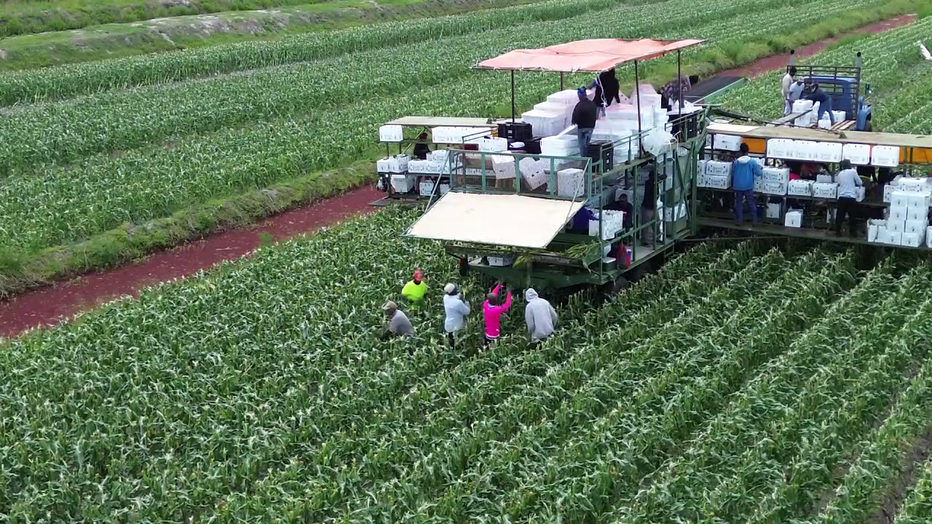
Matt Parke says his workers make between $150 and $200 a day. In Mexico, farmworkers can make as little as $10 a day.
"When two thirds of my cost is labor, how do you compete with somebody that's not even 15% of their cost as labor? I mean, how can I compete with that?" questions Parke.
At the current rate of increases, the H-2A minimum could be more than $20 an hour by 2026.
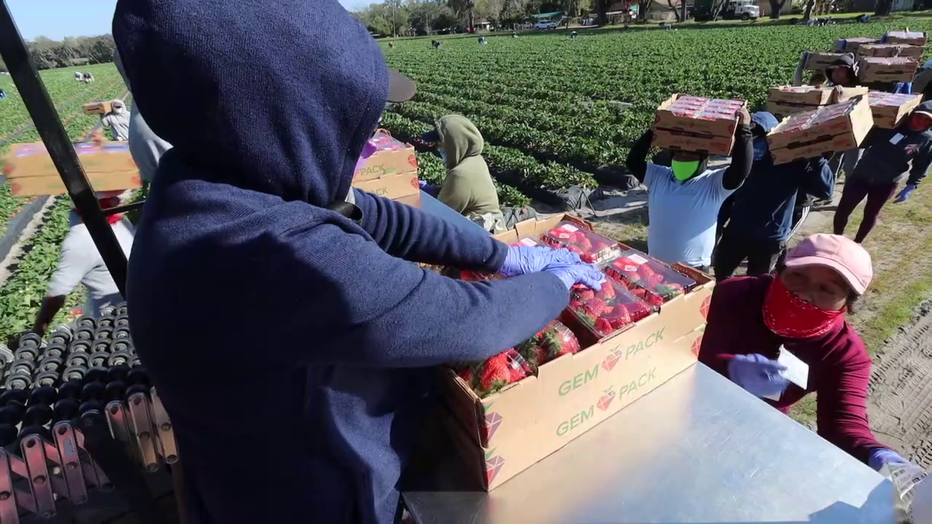
"Within the next three years, you're going to see a lot less farmers out here than there is now," says Parke.
His biggest fear? Some day you won't be able to find any "Product of the U.S." stickers in your produce department.
"That would be the great fall of the United States. We're working that way though."
STAY CONNECTED WITH FOX 13 TAMPA BAY:
- Download the FOX Local app for your smart TV
- Download the FOX 13 News app for breaking news alerts, latest headlines
- Download the SkyTower Radar app
- Sign up for FOX 13’s daily newsletter


